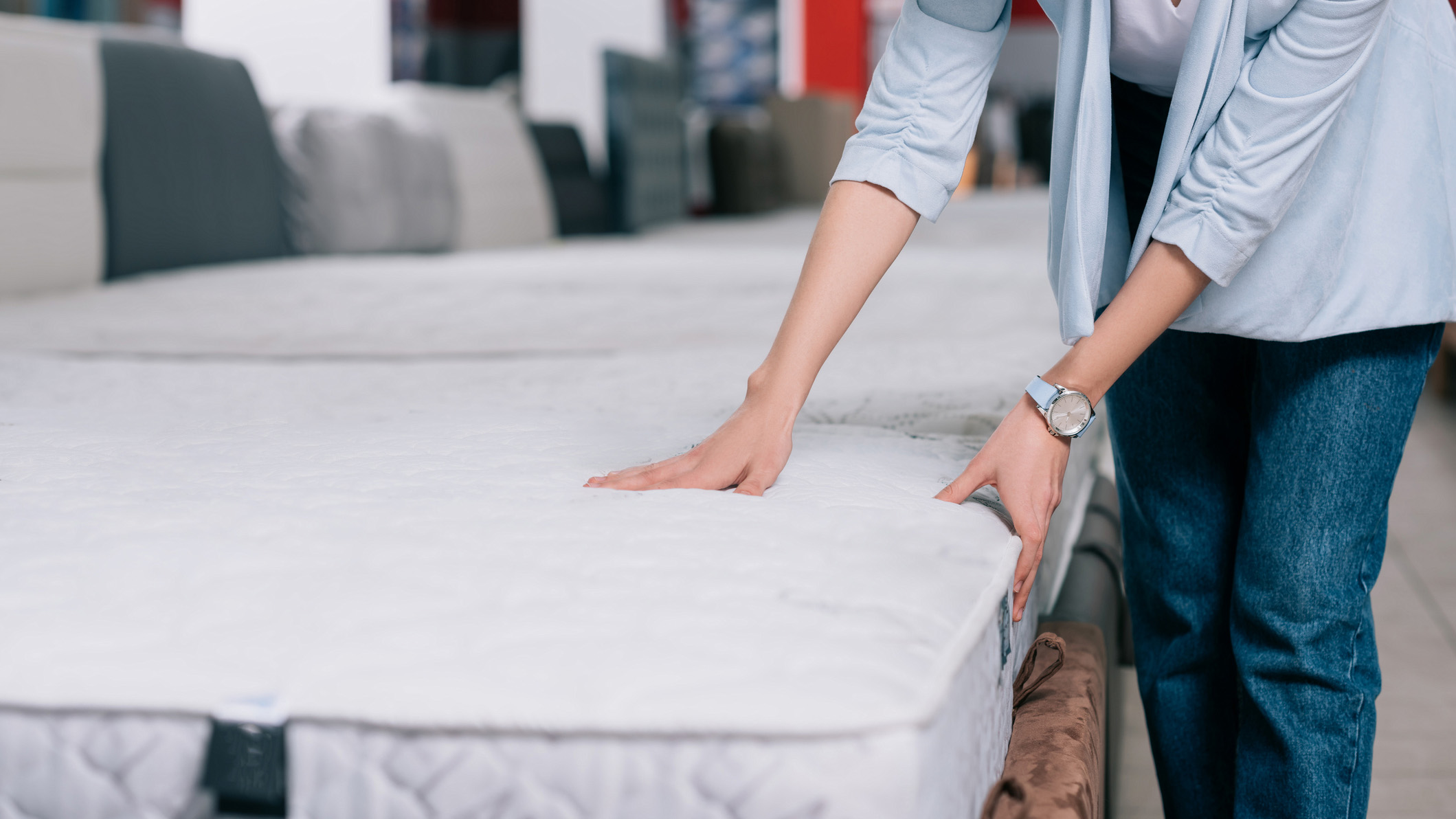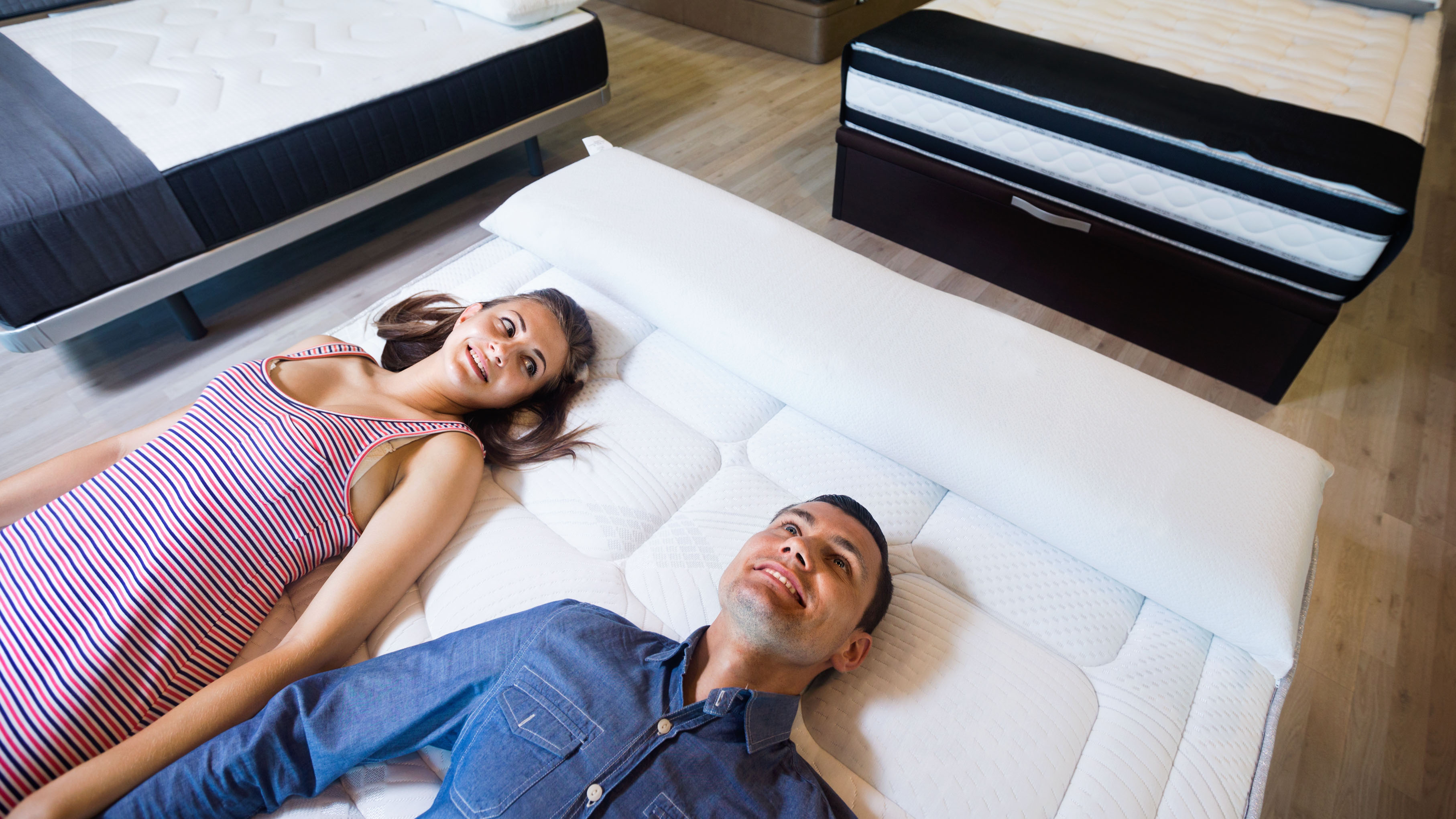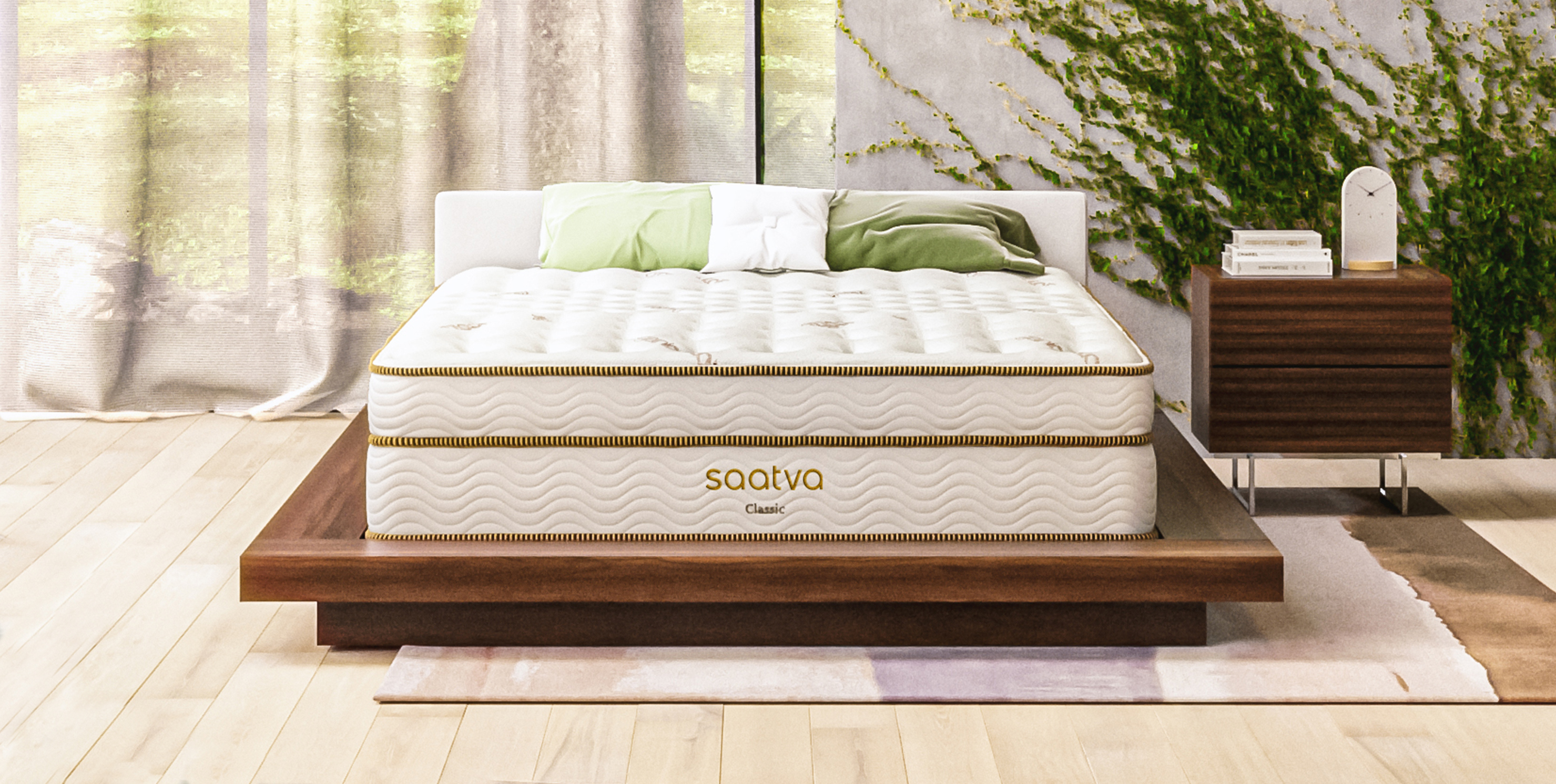
Did you know your mattress size can dictate your comfort just as much as firmness? A sleep surface that's too narrow or not long enough will make it tough for you to get cozy – especially if you share a bed with someone. But which mattress size do you need? If you're unsure, we've put together this handy guide for both US and UK sizes. (Each country does it a little differently.)
There's no better feeling than finding the best mattress for your sleep needs – and that includes choosing the right size to comfortably support you and your bedmates. Naturally, the larger the bed the more money you'll pay, but browsing ongoing Presidents' Day mattress sales will help keep some cash in your pocket if you're shopping in the US.
Whether you're shopping for one of the year's best memory foam mattresses for all-out comfort or a long-lasting hybrid mattress boasting the latest in organic credentials, we'll now outline the main dimensions you’re likely to come across when shopping. Let's get started.
Mattress sizes and dimensions: US
What is a split king?
A split king is two twin XL mattresses pushed together to form one cohesive bed. This allows couples with different preferences and schedules to sleep together comfortably. Split king beds can have different firmness levels on either side.

Many sleep brands sell split king mattresses. Although the dimensions are equivalent to an intact king mattress (76x80"), split kings cost more. Split California king mattresses also exist, but they're rare.
- Read more: What is a split king mattress?
Mattress sizes and dimensions: UK
What are European mattress sizes?
European mattress sizes are longer and wider than their UK counterparts. For instance, an EU double is 140x200cm versus 138x190cm for a UK double. If you have the space to spare in your home (and a little extra room in your budget), opt for a larger European mattress.
How to choose the right mattress size
If you're unsure of which mattress size to shop for, consider the following questions to find the right fit:
Do you share a bed or sleep alone?
Most adults who sleep solo can get by just fine with a twin XL or a full (or a UK small double). Although twins and single-sized mattresses are geared toward children and younger teenagers, smaller-framed adults who sleep alone may find them sufficient.
Queen and double beds will suit couples who share a bed, as well as solo sleepers who like to sprawl. Meanwhile, king-sized mattresses will accommodate families who co-sleep with younger children and pets.
How big is your bedroom?
Most couples will fare well with a queen or a double, but those with palatial bedrooms can go for a king or a UK super king. California king beds are a better choice for rooms that are more narrow than wide.
If you're a solo sleeper, you'll want to stick to a smaller mattress size if they live in cramped quarters. However, you can upgrade to a queen / double if your space allows.

While you may want your bed to serve as a focal point for your bedroom, you don't want it to overtake your space, either. Strive for at least 24 inches / 60 centimeters of clearance on at least one side of your bed so you have plenty of room to get up and walk around. Don't forget to account for other furniture in your room, either.
How tall are you (and your partner)?
You'll want to avoid having your feet hang over the edge of your bed. Solo sleepers who are north of six feet should choose a California king, which has the longest length of any bed standard bed size (84 inches). It's also a good option for couples where one or both partners are on the taller side. (If you're in the UK, that would be a king or super king, which max out at 198 centimeters long.)
Most adults who sleep alone will want to look into a twin XL or a full (small double in the UK), although sleepers under 5-foot-4 should do okay with a twin (UK single) if they neither have nor require a lot of space to sleep comfortably. Co-sleepers should stick to queen/double or king sizes.
How much are you willing to spend?
Obviously, the bigger the bed the more you'll have to pay for it. If you don't have the means to splurge, stick to a smaller size. Also, consider your intended use – you don't need to overspend for a guest bed or a college mattress. Of course, browsing regular mattress sales will ensure you find a good deal for something comfortable.
Key differences between common mattress sizes
Most people find themselves torn between two mattress sizes. Here are the most common size matchups and the ways to determine the best one for you:
Twin vs Full size mattress
A twin bed size is the cheapest type of mattress available. At 38x75" it's perfect for kids and younger teenagers, as well as bunk and trundle beds. Smaller-framed adults can get by with a twin if they sleep alone and don't have a lot of bedroom space to work with. However, for most adults and older teenagers, a longer twin XL (38x80") will be the better choice.
A full bed size is 16 inches wider than a twin at 54x75". This is a sound choice for solo adult sleepers who want more space to sprawl but don't quite have the space or budget for a queen mattress. It's also a good size for a guest bedroom and taller teenagers who've outgrown their twin beds. You can even share a full-sized bed with a partner, but it'll be a tight squeeze.
- Read more: Twin vs full mattresses
Full vs Queen size mattress
A queen bed size measures 60x80". It's 16 inches wider and 5 inches longer than a full, so it's better suited for couples and slightly taller individuals. If you sleep alone, a queen will give you much more room to sprawl – but if you have a smaller bedroom, choose the full instead.

Price-wise, expect to pay around $650 for a mid-range full mattress compared to $900 for a mid-range queen. However, queen is the most popular mattress size in the US so the variety of bedding and accessories on offer are more varied and easier to come by than a full.
- Read more: Full vs queen mattresses
Queen vs King size mattress
A king bed size is the widest of all the standard mattress sizes at 76x80". A king is the same length as a queen but 16 inches wider. If you and/or your partner have a larger build, a king will afford both of you more space to spread out. A king mattress can accommodate more people than a queen so it's great for families who bedshare. On the other hand, if you don't have a spacious room, stick with a queen.
A mid-range queen mattress will set you back around $900 while a king mattress in the same class will set you back closer to $1,200. Keep in mind the materials, brand, and mattress type will also influence the price. Since king is the second most popular mattress size behind queen, you'll have no issue shopping for accessories.
- Read more: Queen vs king mattresses
King vs California king size mattress
A California king, also known as a Western king, measures 72x84". It's the longest of all the traditional bed sizes, but four inches narrower than a standard king. Still, a California king mattress can comfortably fit two adults – and it's also suitable for solo sleepers over six feet tall. However, if your kids and pets like to share a bed with you, a standard king will give you more room to do that.
King and California king mattresses typically cost the same. Despite being a predecessor to the Eastern king – which is what we now know as a standard king – the California king is a fairly niche size so bedding and accessories are comparatively harder to come by. And if you want to split your king-size bed in half, you'll have an easier time finding a split king than a split California king.
- Read more: California king vs king mattresses
How to choose the right bed frame for your mattress
The size of your bed frame corresponds with the size of your mattress – that's simple enough. However, a bed frame will be roughly two to five inches larger than the mattress it'll be holding. (This will vary by model.) Measure your bedroom plus the amount of space you have allotted for your sleeping area. Remember to reserve at least two feet of clearance on the side where you normally get out of bed.

Here's what else you need to know when shopping for the right bed frame:
- Height: You should be able to sit at the edge of your bed with your feet flat on the ground and your knees at a 90-degree angle. A frame that's too tall could make it harder for you to safely get out of bed.
- Support: Your bed frame should be sturdy enough to hold you and your mattress – along with a partner, your kids, and/or your pets, if applicable. This will likely be a foundation with slats or a solid wooden board.
- Style: Platform beds are popular for their minimalist aesthetic and functionality as many come with built-in storage. If you have very limited space, consider a trundle or a bunk bed. If you want to make more of a statement, add a headboard and/or a footboard, or go for a lavish four-post bed.







